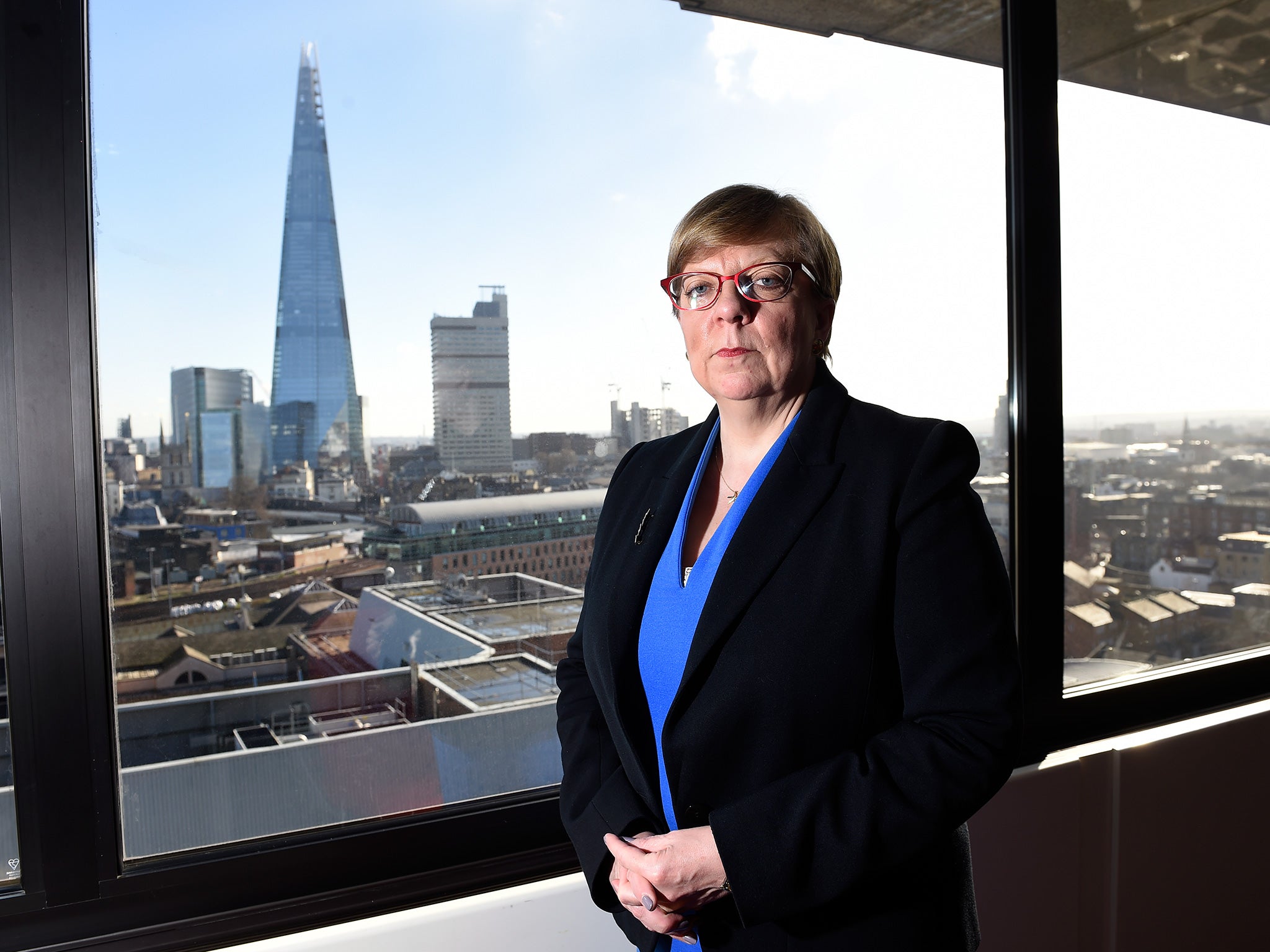Lord Janner: Britain's top prosecutor defends decision not to charge Labour peer with child sex crimes
Alison Saunders, the Director of Public Prosecutions, said she was 'not afraid' to have her ruling tested by judges in public

Britain’s top prosecutor has defended her decision not to charge the former MP Lord Janner with child sex crimes – telling her critics to “challenge me in court”.
Alison Saunders, the Director of Public Prosecutions (DPP), said she was “not afraid” to have her ruling tested by judges in public and remained convinced she had made the “right decision” over the Labour peer’s case because he is said to have dementia.
She rejected calls for her resignation, saying that “making the right decision is not a resigning issue”, and dismissed claims that her leniency to Lord Janner was the result of an Establishment cover-up.
Her comments came in an interview with the London Evening Standard in which she also disclosed that a “completely independent” person – potentially from outside the Crown Prosecution Service – will be asked to review her decision if one of the peer’s alleged victims asks for the case to be reassessed.

They follow a barrage of criticism of her ruling last week that it would not be in the public interest to prosecute Lord Janner despite sufficient evidence to justify charges over at least 25 allegations of historical child sex abuse.
The QC said she has paid a “heavy price” for her decision but insisted she had been right to avoid the “easy option” of sending the case to court for a judge to throw out.
“If somebody wants to challenge my decision, I’m not afraid. The proper way to challenge it is through the right to review or a judicial review.
“I’m confident that if they want to do that, my decision will stand up. I thought long and hard before making it and I’m confident I got it right.
“My job is not to be populist. It’s not to make decisions on the basis of what people want. It’s about making the right decisions.”
Ms Saunders, who took over as DPP in 2013, said evidence by four medical experts convinced her that the peer, whose alleged offences took place over several decades of his parliamentary career, would not be fit to stand trial.
However, she admitted being “frustrated” he could not be brought to justice. “If it were not for Janner’s medical condition we would have been prosecuting this,” she said.
